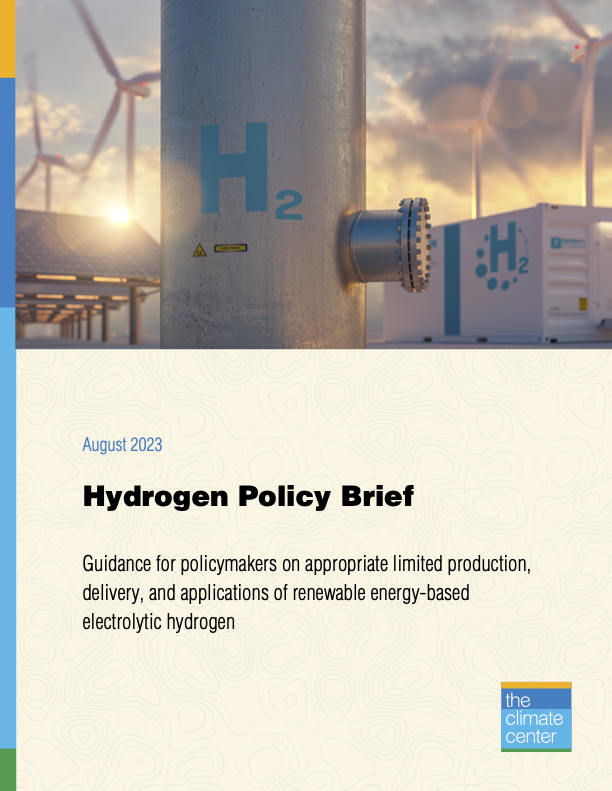The IPCC’s Sixth Assessment Report states that 100 percent renewable energy systems will likely need to include hydrogen. However, the hydrogen debate — based on efficiency costs, climate pollution, health and safety, and environmental impacts — is complex and has ebbed and flowed over the past several decades.
The reality is that hydrogen is neither a panacea nor categorically a false solution. When planned carefully with meaningful safeguards, hydrogen can play a role in the clean energy economy with benefits for communities and the environment.
In this policy guidance, we assess hydrogen as a potential climate solution, with recommendations in three main categories: production, delivery, and applications.
Key recommendations:
Hydrogen, and only green hydrogen, should only be considered in cases where electrification is not an option. Hydrogen should never be deployed to extend the life of fossil fuel infrastructure, nor should it replace or delay direct electrification. When properly implemented, the integration of hydrogen production into local energy systems should increase available renewable generation capacity.
Scaling up green hydrogen would require enormous public investment in new infrastructure. Electric infrastructure is ubiquitous and electrification in most sectors is practical, increasingly affordable, available, and reliable. Due to longstanding and unresolved problems — including efficiency, cost, and safety — few valid use cases for hydrogen remain. Public investment should be limited to advancing renewable energy-based electrolytic hydrogen (green hydrogen) with community and environmental safeguards. Absent the development of adequate safety systems, hydrogen pipeline and other delivery systems should be minimized and hydrogen production should be co-located with applications.
Questions or feedback? Please reach out to us at info@theclimatecenter.org.
Author’s note: This policy brief was first published in June 2023 and updated in August 2023.


